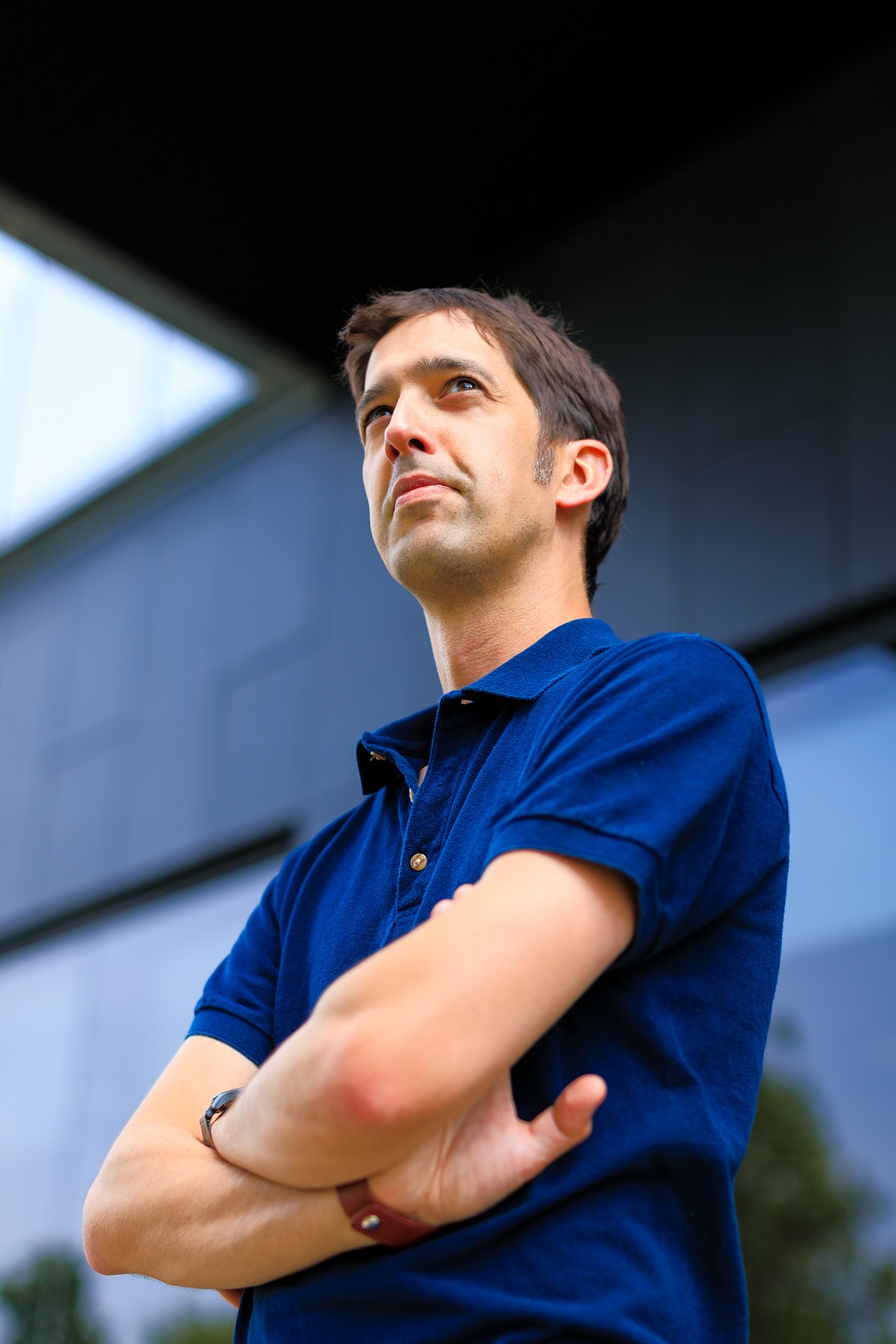“I’m not seeking penance for what I’ve done, Father. I’m asking forgiveness… for what I’m about to do.”—Matt Murdock, “Daredevil,” Season 1×1 – “Into the Ring”
With that line, coming at the end of a heartfelt confession, Marvel launched Daredevil in 2015. It was the first of the true superhero shows made for Netflix television by the powerhouse studio, not counting Agents of S.H.I.E.L.D., which has always been about the heroes behind the supers. This was a bold move in many ways, in part because the last outing for the character was a disastrous Ben Affleck version that hit screens in 2003 and because he’s not one of the well-known movie superheroes like Iron Man or Captain America.
Most bold, perhaps, is his religiosity, which is true to the comic book character.
Matt Murdock, son of a murdered boxer and a local orphan who becomes a promising lawyer, is blind, thanks to a childhood run-in with a truck carrying toxic chemicals. As often happens in comic books, that accident doesn’t kill the boy, but rather heightens all the rest of his senses to extreme levels. His father’s death and his subsequent training at the hands of a mysterious old warrior named Stick—think a profane, crude, deceitful, blind version of Obi-wan Kenobi—led Matt to prepare himself for life as a vigilante.
That vigilantism is fascinating, unlike the crimefighting careers sought by other heroes, because Matt is both spurred on by his faith and discouraged from going on the offensive by that same faith.
The juxtaposition starts even before the introductory credits of the first episode, with Matt’s confession. He speaks of his father, the pride he felt for “Battlin’ Jack” Murdock’s dogged pursuit of his opponents, yet you can sense the fear:
“My grandmother, she was the real Catholic. Fear of God ran deep. You’d have liked her. She used to say, “Be careful of the Murdock boys. They got the devil in ’em.” And you’d see it sometimes in the ring. His eyes would go dead… and he’d start walking forward real slow, hands at his sides like he wasn’t afraid of anything. And the other guy, he’d see that look, and he’d try to get away from him. Nah. My dad, he’d catch him and trap him in a corner. Let the devil out.”
This last line becomes something of a mantra and a warning for all three seasons of Daredevil. Matt wants desperately to fight injustice. He seeks punishment for wrongdoers through legal means but recognizes that sometimes the law is inadequate. That’s when he descends as Daredevil—or, as he’s known for most of Season One, the Devil of Hell’s Kitchen.
He explains to one character that he fought against this temptation for years, even as he honed his body as a weapon, and did his best to shut out cries for help. See, one of the blessings—or perhaps curses—of Matt’s powers is he can hear almost any sound, at great distance.
Hearing the cries of a little girl who has suffered degrading abuse at the hands of her father is enough to push him over the edge.
We see the rage, that dead look in the eyes, in the flashback version of Matt as he “lets the devil out” on the man, beating him nearly to death. When it’s over, you’re left wondering whether Matt feels sorrow for what he’s done, or vindication.
One can see and hear in his conversations with Father Lantom throughout Season One how Matt is conflicted by this. Episode Nine, “Speak of the Devil,” has perhaps the best commentary of the season in their discussion about what Matt’s next steps are. To clarify: Lantom, who has known Matt since he was an orphan, is aware at first vaguely and then explicitly of his Devil of Hell’s Kitchen persona but will never tell anyone because of the sanctity with which Roman Catholics treat private confession.
Lantom speaks of meeting evil personified in an African general when quizzed as to whether he believes the devil is real. Matt is asking because that’s how he views Wilson Fisk, the antagonist, who has ruined so many lives and killed innocents in pursuit of his goals—but he also recognizes that Fisk is in love and is loved by someone. Lantom replies, “Few things are absolute, Matthew. Even Lucifer was once an angel. It’s why judgment and vengeance… are best left to God. Especially when murder is not in your heart.” He speaks directly to Romans 12:19, in which Paul exhorts Christians, “Beloved, never avenge yourselves, but leave it to the wrath of God, for it is written, “Vengeance is mine, I will repay, says the Lord.”
But the most telling conversation, and one of my favorites of all three seasons, is this exchange:
Matt: I know my soul is damned if I take his life. But if I stand idle, if I… if I let him consume this city, all the people that will suffer and die…
Lantom: There is a wide gulf between inaction and murder, Matthew. Another man’s evil does not make you good. Men have used the atrocities of their enemies to justify their own throughout history. So the question you have to ask yourself is: are you struggling with the fact that you don’t want to kill this man but have to? Or that you don’t have to kill him but want to?
Matt Murdock wants to do right. He doesn’t want to sin. Yet, he is frustrated by the visible lack of God’s vengeance, something we don’t see in our mortal spans. He is blind to the timeless plans of God even as he is gifted with supernatural abilities.
The Devil of Hell’s Kitchen has a line he will not cross.
For now.
Next month, Steve will continue his analysis of the Christian elements in Marvel’s “Daredevil” with “Let the Devil Out: Part II.”

Steve Rzasa is the author of eleven novels and numerous short stories of science-fiction, fantasy, steampunk, and contemporary fiction. His work has won the ACFW Carol Award for Speculative fiction.
Steve received his bachelor’s degree in journalism from Boston University, and worked for eight years at newspapers in Maine and Wyoming. He’s been a librarian since 2008, and received his Library Support Staff Certification from the American Library Association in 2014—one of only 100 graduates nationwide and four in Wyoming. He is the technical services librarian in Buffalo, Wyoming, where he lives with his wife and two boys. Steve’s a fan of all things science-fiction and superhero, and is also a student of history.

